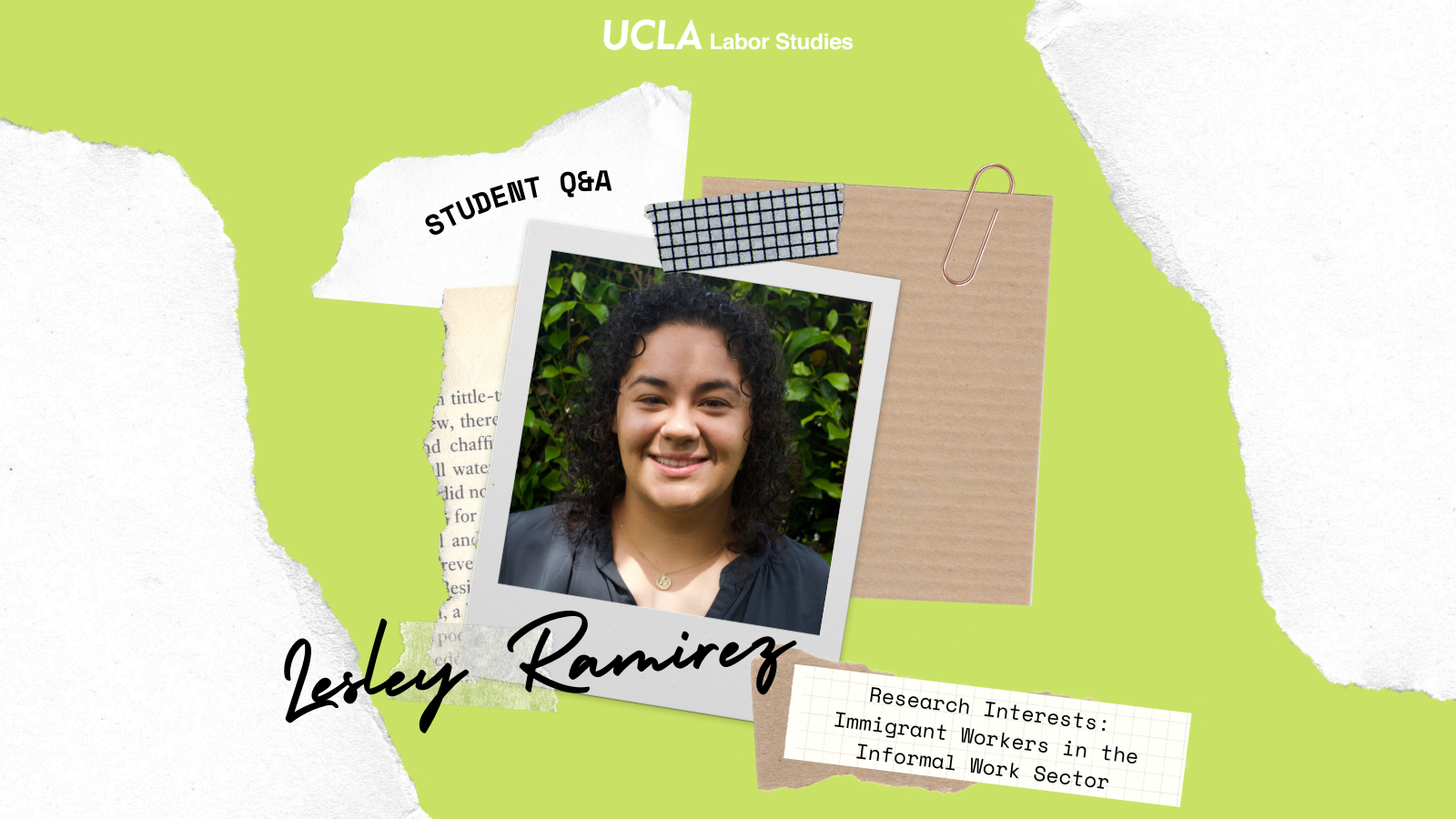Student Researcher Q&A: Lesley Ramirez on Immigrant Workers in the Informal Work Sector
Lesley will be presenting the research project How Immigrant Workers Understand Their Benefits, Rights, and Protections During the COVID-19 Pandemic at the Undergraduate Research & Creativity Showcase on May 25, as part of UCLA Undergraduate Research Week (May 24-28).
Can you tell us a little bit about yourself and your research interests?
My name is Lesley Ramirez, I am a fourth-year transfer student double majoring in English and Labor Studies. I grew up in a community that has a large population of immigrant workers, not to mention I am the child of immigrants. After taking my first few classes in the Labor Studies program and learning about worker organization, and research conducted by faculty at UCLA, I realized there was more to learn and more questions to ask. I added Labor Studies as a second major because it allowed me to take more courses. This gave me the opportunity to intern remotely over the summer with the San Fernando Valley Refugee Children’s Center (SFVRCC). Having the opportunity to work with the SFVRCC and my own experience with growing up in a community of immigrant families I was able to develop a research question that would expose findings beneficial to undocumented workers and immigrant families.
What is your research project topic?
My research project topic is Latinx immigrant workers in the informal work sector and their understanding of benefits during the COVID-19 pandemic. I conducted the study during my capstone class with Professor Janna Shadduck-Hernández as my faculty advisor. Additionally, I focused on workers who are not members of worker organizations. Often undocumented workers are reluctant to making worker claims or accessing benefits given their status, I wondered whether this was the case during a heightened state of danger such as the pandemic.
What is one notable finding from your research?
I found that despite these individuals not being considered organized workers they form strong, mutually beneficial networks. Given that union and worker center membership (density) is decreasing, organizers can apply these findings to better understand how non-unionized immigrant workers network. Lastly, if we experience future unprecedented natural disasters, these networks can be used to spread information on benefits and resources that help immigrant communities.
How was your experience conducting research remotely?
I have no previous research experience to compare conducting research remotely, however, given that everyone was working remotely I found it easier to meet with my faculty advisor, or set up interview times with my participants. I was also able to conduct field observations following social distancing orders.
What advice would you give others who are considering pursuing their own research project?
I would advise others not to be intimidated by research. As you begin to read the literature surrounding your topic and start to immerse yourself in the literature it will become you will be able to frame it into what you want to ask. It is important to keep in mind that research is always changing, and your work will be constantly changing, but do not be afraid.
What skills have you learned from research experience?
One of the skills I learned from this research experience is how to analyze data and categorize it into parent and child codes. This is an important skill because it helps you organize the literature you use and the data you conduct. Then, by the time it comes to drafting your research paper it all becomes manageable and less daunting.
What’s the most fulfilling part of working on your project?
For me, the most fulfilling part is having gone to an institution that prides itself in the research conducted by the students and faculty and being able to conduct research that focuses on my community. This project, I hope, will contribute to the uplift of undocumented, immigrant communities.


